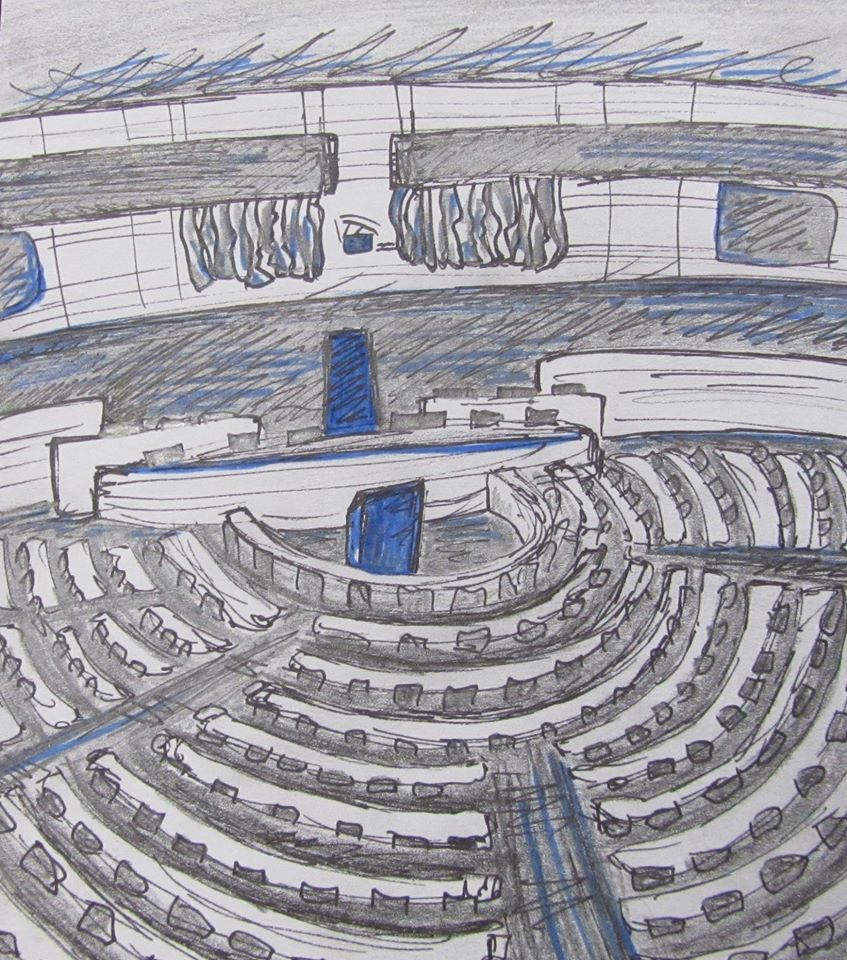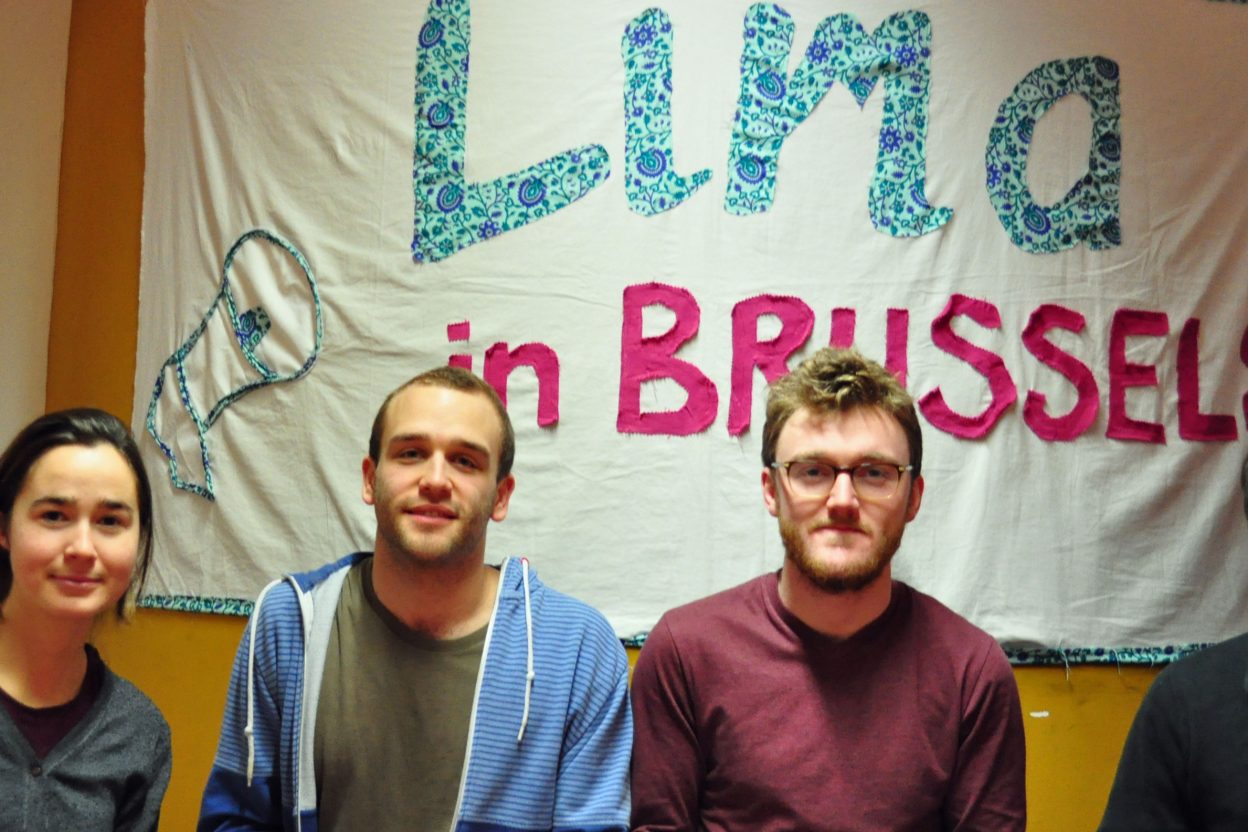During Lima in Brussels, some participants reached out to and met with some of their MEPs in the European Parliament. Ciara Ryan-Gerhardt from Ireland reports…
Two things stopped me in my activist tracks at the European Parliament Building this week. I am here to learn about, campaign and build awareness for climate justice; today I was reminded what a complex and difficult to define topic, and more hopefully movement, it is. The first meeting was less serious: my friend Rob and I were about to pass through the security screening in the front lobby when he said quietly ‘I have an egg in my pocket.’ (At breakfast in our Hostel he’d taken one and forgotten to eat it.) I laughed and said I reckoned we’d be ok—the security check wasn’t as strict as airports. We moved on through and followed our Member of European Parliament (MEP’s) assistant whom we were going to speak to.
The second meeting with another MEP made me stop for a more serious reason.
As activists we are fighting for a cause with our words; we have to be clear and precise. I sometimes feel that as an activist I put on my ‘Activist Hat’ (or in the words of a podcast interview commentary on Jeffrey Sachs, my ‘Advocacy Hat’). I get idealistic, big and global on a highly complex, politicised issue…and, I hate to say it, but a little naïve. But here’s the thing (and this is where it gets very interesting and why some would say ‘idealistic’): no increase is safe.

The United Nations (IPCC) says a 2°C increase is safe, climate scientists say 1.5°C is safe, Friends of the Earth, Greenpeace and other environmental organisations and groups say no increase is safe. And current knowledge says that if business as usual continues we’re faced with a 5-6°C increase by the end of this century. Climate science is interwoven with a lot of uncertainty, But in the words of an atmospheric physicist in Thin Ice: I don’t worry that we are going to all get killed by this ‘thing’ [he refers to our adaptable and resilient nature]. I do worry [though] that our children are not going to thank us for giving them the headache we’re going to be giving them if we carry on the path were following… Because if we don’t get out of this, they will have to. He says thateach decade we postpone action to combat climate change and global warming,is another billion of tons or so of CO2 released in to the atmosphere.He says that that is the sort of climate where we really can’t predict where the warming will stop.
So what is climate justice? I’m still not sure I have an answer to that question but for me it’s got something do with the following: the global North is historically responsible for our climate crisis so it’s really up to us to lead. We have the finances, we have the technology, and we definitely need it: whether people are aware or not it is a human rights issue too and affects marginalised groups and sectors of society. That means working directly on local, practical and community-invested ownership of resources and energy, and local and sustainable jobs. It also means at an EU and local level, binding targets that are more ambitious than our current one that meant once we’d reached it (on overall EU level), there’s no more action until post 2020 (Yes, that’s right!). Given that once a Climate Bill is passed it has already been through the Parliament, Commission and corporate/industry-lobby hands, and is watered down each time, this is particularly important. Accountability (for example ensuring the advisory body is independent in their duties) Intergenerational equity is important, this is an issue that will affect our generation and many more into the future – that is actually where the whole issue gets quite scary, because as of today it is very difficult to say what this looks like.
It was hard learning but thanks to my MEP for pointing out the loopholes in my argument and my attempting to get clear.
Resources: I highly recommend watching the film ‘Thin Ice,’ which gives an overview of climate science by the researchers that are at the forefront of this interdisciplinary science. Physicists, biologists and chemists combine to make this film interesting and informative. You’ll find it here.

